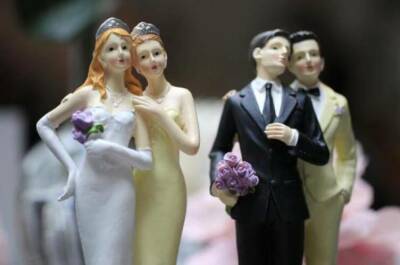Christians losing religious freedom battles in court, what can they do?

While members of the LGBT community say they are fighting against discrimination, Christians have said they are just trying to stand up for religious liberty. Lawsuits have been filed against those who refuse to provide services to gays because of their religious beliefs, giving rise to the question of how Christians can uphold their faith without being taken to, or losing in, court.
Political commentator Deroy Murdock of the National Review provides options on how conservatives can defend their stance. Religious liberty, without doubt, should be defended, but rather than focusing only on that, Christians can also go with other defenses, including freedom of speech and involuntary servitude.
The article says that Christians can perhaps stand against compulsory expression and coerced speech. It mentions, as an illustration, a fundamentalist Muslim calligrapher who is forced to write an invitation for a gay couple's wedding. This could be thought of as somewhat like making a Christian baker write the words on a same-sex couple's wedding cake using a frosting pen -- both may be rather oppressive for the concerned individuals if it goes against their firmly held religious beliefs. The same goes for Christian photographers who are forced to take photos of a gay couple during their wedding.
Moreover, they can perhaps cite involuntary servitude, wherein they are forced to do or make something against their will.
Christians have been losing the court battles against customers who cite discrimination as the basis for their respective lawsuits.
Christian baker Jack Philips of Masterpiece Cakeshop has lost his appeal for a case filed against him by Charlie Craig and David Mullins who, in 2012, asked him to make a wedding cake for them, to which he declined. The Colorado Civil Rights Commission has ruled that he discriminated against the couple, and the Colorado Supreme Court has denied to hear his case.
Christian photographer Elaine Huguenin was earlier sued for not wanting to take photos at a lesbian wedding, and New Mexico's Supreme Court ruled against her, and the U.S. Supreme Court has denied her appeal.
 Christians don't have to affirm transgenderism, but they can’t express that view at work: tribunal
Christians don't have to affirm transgenderism, but they can’t express that view at work: tribunal Archaeology discovery: Medieval Christian prayer beads found on Holy Island
Archaeology discovery: Medieval Christian prayer beads found on Holy Island Presbyterian Church in America votes to leave National Association of Evangelicals
Presbyterian Church in America votes to leave National Association of Evangelicals Over 50 killed in 'vile and satanic' attack at Nigerian church on Pentecost Sunday
Over 50 killed in 'vile and satanic' attack at Nigerian church on Pentecost Sunday Ukrainian Orthodox Church severs ties with Moscow over Patriarch Kirill's support for Putin's war
Ukrainian Orthodox Church severs ties with Moscow over Patriarch Kirill's support for Putin's war Islamic State kills 20 Nigerian Christians as revenge for US airstrike
Islamic State kills 20 Nigerian Christians as revenge for US airstrike Man who served 33 years in prison for murder leads inmates to Christ
Man who served 33 years in prison for murder leads inmates to Christ


 Nigerian student beaten to death, body burned over ‘blasphemous’ WhatsApp message
Nigerian student beaten to death, body burned over ‘blasphemous’ WhatsApp message 'A new low': World reacts after Hong Kong arrests 90-year-old Cardinal Joseph Zen
'A new low': World reacts after Hong Kong arrests 90-year-old Cardinal Joseph Zen Iran sentences Christian man to 10 years in prison for hosting house church worship gathering
Iran sentences Christian man to 10 years in prison for hosting house church worship gathering French Guyana: Pastor shot dead, church set on fire after meeting delegation of Evangelicals
French Guyana: Pastor shot dead, church set on fire after meeting delegation of Evangelicals ‘Talking Jesus’ report finds only 6% of UK adults identify as practicing Christians
‘Talking Jesus’ report finds only 6% of UK adults identify as practicing Christians Mission Eurasia ministry center blown up in Ukraine, hundreds of Bibles destroyed: 'God will provide'
Mission Eurasia ministry center blown up in Ukraine, hundreds of Bibles destroyed: 'God will provide' Church holds service for first time after ISIS desecrated it 8 years ago
Church holds service for first time after ISIS desecrated it 8 years ago Burger King apologizes for 'offensive campaign' using Jesus' words at the Last Supper
Burger King apologizes for 'offensive campaign' using Jesus' words at the Last Supper Uganda: Muslims abduct teacher, burn him inside mosque for praying in Christ’s name
Uganda: Muslims abduct teacher, burn him inside mosque for praying in Christ’s name